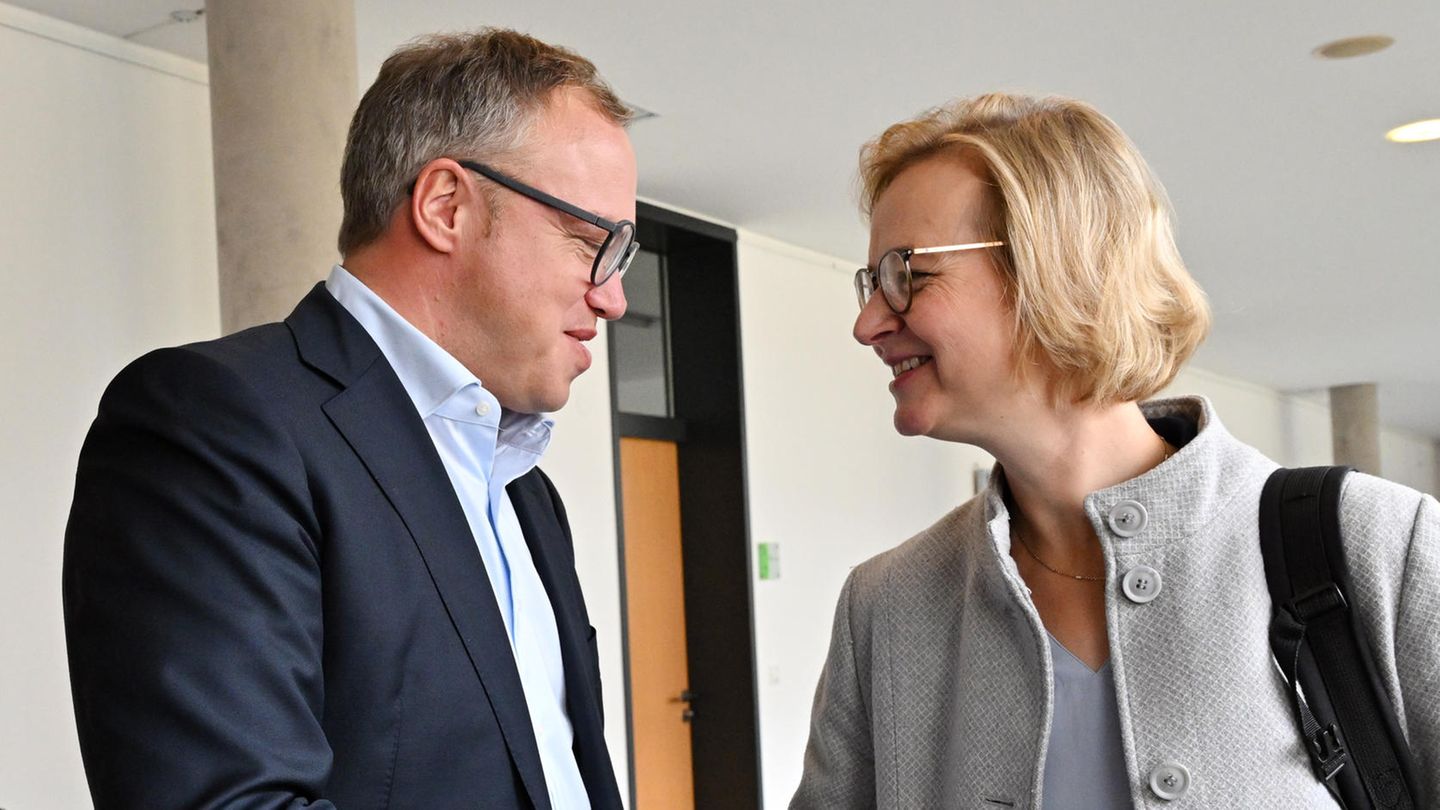Exclusive
Thuringian Blackberry Coalition wants amnesty for Corona proceedings
Copy the current link
The CDU, BSW and SPD only partially take Sahra Wagenknecht’s demands into account in the Thuringian coalition agreement. The party leader is still satisfied.
After the formation of a joint state government in Thuringia, the CDU, BSW and SPD are planning an amnesty for companies and citizens who violated protective measures during the corona pandemic. “Fine proceedings that are still open or pending should not be pursued further or should be encouraged to be discontinued,” it says, according to information from the star in the final negotiated coalition agreement.
The future state government should examine “whether an amnesty law is necessary in this context”: “We want to draw a line under the legal consequences of the corona pandemic and thereby mitigate perceived injustices and ensure legal peace.” The model is a corresponding decision by the Bavarian state government.
The amnesty was one of the core demands of BSW federal chairwoman Sahra Wagenknecht. She described the exploratory paper presented a month ago as a “mistake”. As a result, there was an open power struggle between the party leadership in Berlin and the leadership of the Thuringian regional association.
The Federal Executive Board declared in a resolution that the BSW could only participate in a government after significant improvements were made. This is particularly about the party’s so-called peace positions, but also about state political concerns.
In the current contract paper, however, the CDU and SPD hardly make any additional foreign policy concessions to Wagenknecht. Neither the arms deliveries to Ukraine nor the planned stationing of US medium-range weapons in Germany are being questioned. The preamble, which was harshly criticized by the party leader, remains unchanged.
Only in the contractual chapter that deals with European policy is the BSW addressed again in a wording on the foreign policy situation and the stationing of US missiles is critically questioned. The parties also promise to set up additional teaching and research capacities for peace and conflict studies at universities.
Although the ultimatum given by Wagenknecht is not fulfilled, the party leader has already signaled her approval. Given the failure of the traffic light federal government and the early federal election, it cannot risk further escalation in Thuringia, especially since the party’s values are declining. In the latest Forsa survey, the BSW is only at 4 percent. The personal values of the party leaders have also suffered.
Wagenknecht is now trying even harder to declare the results his own success. She said that the fact that the coalition agreement was “much more concrete and better” than the exploratory paper was mainly due to pressure “from the Thuringian base and the federal party”. star.
She can also point out that the CDU and BSW have pushed through a tougher migration policy against the SPD. A central state immigration authority should control the admission and repatriation of refugees, but also regulate integration and the recognition of professional qualifications. The coalition also wants to speed up asylum procedures and deportations and set up its own deportation detention centers. The payment card for asylum seekers should be available nationwide.
After Wagenknecht’s statements, there should be little standing in the way of the so-called blackberry coalition in Thuringia. The contract will be presented on Friday afternoon in Erfurt and must then be approved by the state committee of the CDU and by a state party conference of the BSW. The SPD is planning an online survey of its members.
Wolf should receive finance ministry
The election of CDU state leader Mario Voigt as Prime Minister is scheduled for mid-December. Since the coalition only has 44 of the 88 votes in the state parliament, it is expected that the head of government will only be determined with a relative majority in the third round of voting. Theoretically, the election could end in a stalemate even if the AfD supported the announced left-wing candidate in the secret vote.
Regardless, the three partners still have to discuss the cabinet list. The number of ministries will not change, although there will likely be new layouts. BSW state director Katja Wolf is to become deputy prime minister and finance minister. It is currently unclear whether SPD state chairman Georg Maier will remain interior minister or take over the economics department.
Source: Stern
I have been working in the news industry for over 6 years, first as a reporter and now as an editor. I have covered politics extensively, and my work has appeared in major newspapers and online news outlets around the world. In addition to my writing, I also contribute regularly to 24 Hours World.





